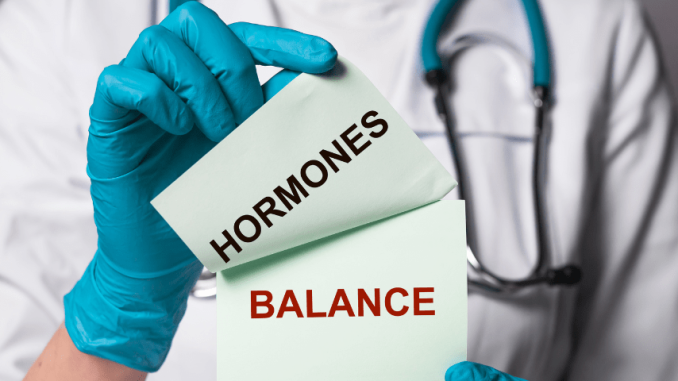
The hormones are the body’s chemical messengers, and they handle many processes which are essential for health. Women’s hormone balance is particularly important. It influences not just menstrual cycle length and ability to produce eggs but also feelings related to moods on an emotional level or even bone health if cold and flexible rather than warm. For a better understanding of this complex interplay among hormones, women have the power to take charge of their own health and make choices that will serve them well from wellness advice received by lawyers in turn.
Hormone Players & Their Functions
Estrogen: Often referred to as the primary female sex hormone, estrogen is essential for normal development of the female reproductive system and regulates it. It affects the menstrual cycle, skin health and bone, as well as mood. When menopause sets in estrogen levels drop precipitously; sufferers experience symptoms that are well-known such as night sweats, hot flashes from external sources without cause, or vaginal dryness.
Progesterone: This hormone is essential for regulation of the menstrual cycle and maintaining pregnancy. Progesterone prepares the uterus lining to receive a fertilized egg and sustains pregnancy should fertilization occur. An imbalance in progesterone levels can result in irregular menstrual cycles or difficulty conceiving.
Testosterone: Testosterone is often known as the male hormone, but it exists in women as well-largely in lower amounts. It helps to maintain the strength and thickness of muscles, bone density, as well as the libido. Low levels of testosterone in women result in less energetic levels and lower sexual desire.
Thyroid Hormones: The thyroid gland produces hormones which are key regulators of the metabolic rate, energy levels and overall nutritional status. With conditions such as hypothyroidism (an underactive thyroid) or hyperthyroidism (overly active thyroid) a woman’s health may suffer greatly; everything from weight to energy levels can be affected, and often mood as well.
Insulin: The pancreas produces insulin, which regulates blood sugar levels. Insulin resistance is often the companion of other conditions—like polycystic ovary syndrome (PCOS)—and diabetes mellitus. Hormonal imbalances can result in symptoms such as weight gain, fatigue and irregular menstrual cycles.
Hormonal Changes Across the Lifespan
Childhood: The end of puberty is the start of a girl’s significant hormonal changes. The increase in estrogen and progesterone brings on secondary sexual characteristics menstruation. How to manage these changes can be difficult, but can understanding what is normal make them to a certain extent.
Reproductive Years: During a woman’s reproductive years, hormonal variations appear clearly in the regularity of her menstrual cycle. Monitoring for these changes can help alert her to any irregularities which signal underlying health problems like endometriosis or fibroids.
Pregnancy and Postpartum: The body undergoes dramatic changes in hormone levels to aid in the formation and growth of fetal organs. After having given birth, women experience another round of hormonal changes as their bodies re-adjust to the absence of a fetus. This time period can be marked by feelings of instability, weariness and alterations in one’s body functioning.
Menopause Impulses: menopause marks the end of a woman’s reproductive years with a significant decrease in estrogen and progesterone. This changeover can produce various symptoms such as hot flashes, insomnia and changes in sexual function. Hormone replacement therapy (HRT) combined with life style adjustments may aid in tiding these symptoms over.
Postmenopause: On entering into post-menopausal life, the body aims to adjust itself to lower levels of hormones. For long-term health, keep bone mass density losses in check and prevent cardiovascular troubles. Regular check-ups and protective measures can help keep tabs on all of these risks.
Maintaining Hormonal Health: Strategies and Strategies
Diet and Nutrition: A well-rounded diet that includes plenty of fruits, vegetables, lean proteins and whole grains is essential for maintaining good health. Certain nutrients such as omega-3 fatty acids, vitamin D and magnesium participate in the regulation of hormonal.
Exercise: Regular physical activity can help stabilize your hormonal balance by both reducing stress levels and increasing insulin sensitivity. Activities like yoga and weight training are particularly beneficial.
Chronic stress: Irregular periods and mood swings are often due to hormonal imbalance caused by chronic stress. Mindfulness, meditation, and relaxation exercises can all be used in the management of stress as well.
Medical Intervention: For women at risk of serious hormonal imbalance, cooperation with a health care provider is necessary. According to their particular circumstances, medications, hormonal therapies, or other treatments may be prescribed.
Regular Health Check-ups: Regular visits to a healthcare provider can help to monitor hormone levels and catch any problems early. Blood tests, diagnostic tools and other methods provide valuable feedback on how well our hormones are functioning.
Understanding and managing the health of our hormones is an essential part of overall wellness. When we understand what various hormones do in our bodies, and how they are affecting us in different ways, proactively we can take steps to preserve health and deal with any problems that may arise.
Leave a Reply